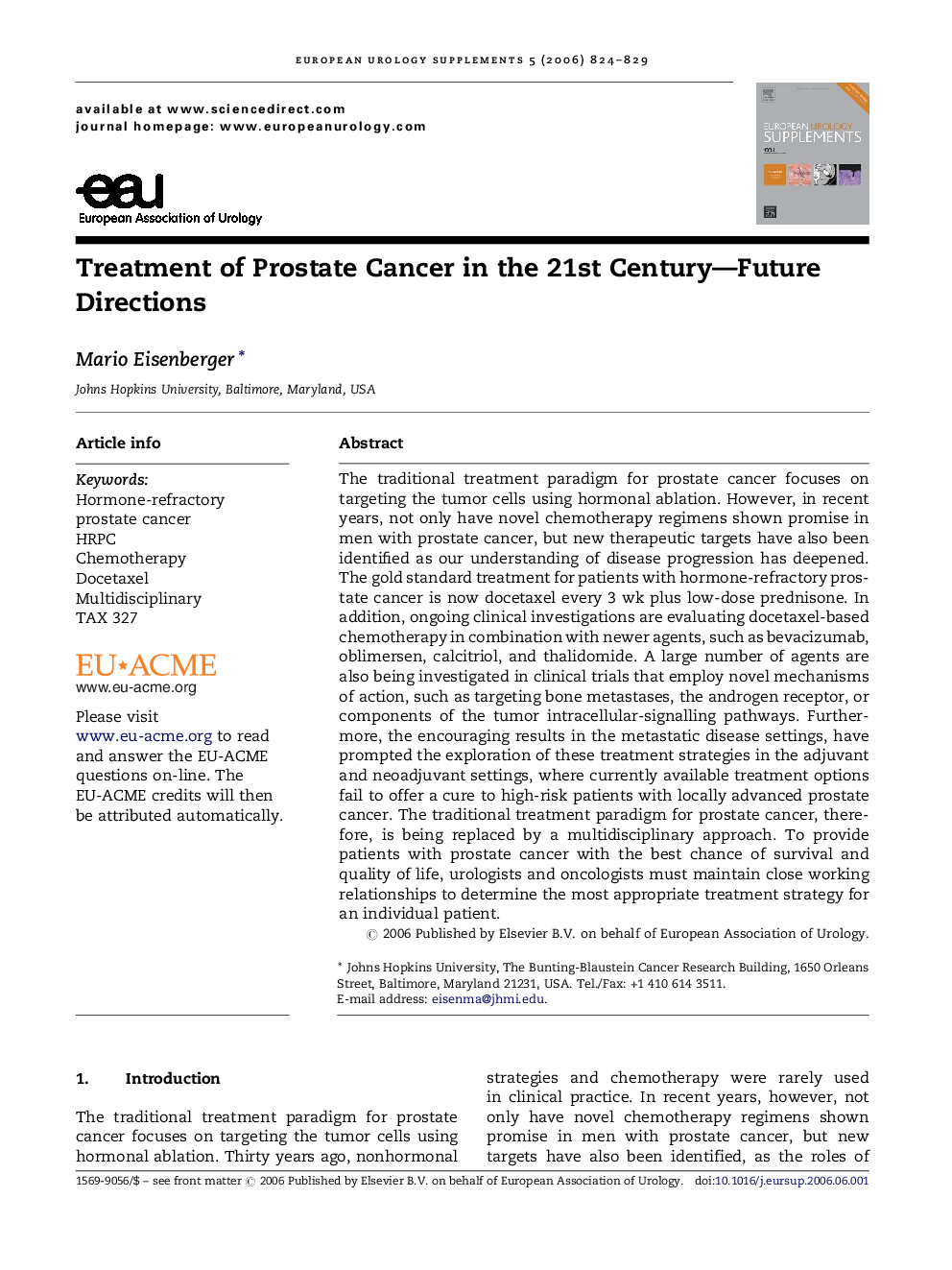| Article ID | Journal | Published Year | Pages | File Type |
|---|---|---|---|---|
| 3931264 | European Urology Supplements | 2006 | 6 Pages |
Abstract
The traditional treatment paradigm for prostate cancer focuses on targeting the tumor cells using hormonal ablation. However, in recent years, not only have novel chemotherapy regimens shown promise in men with prostate cancer, but new therapeutic targets have also been identified as our understanding of disease progression has deepened. The gold standard treatment for patients with hormone-refractory prostate cancer is now docetaxel every 3 wk plus low-dose prednisone. In addition, ongoing clinical investigations are evaluating docetaxel-based chemotherapy in combination with newer agents, such as bevacizumab, oblimersen, calcitriol, and thalidomide. A large number of agents are also being investigated in clinical trials that employ novel mechanisms of action, such as targeting bone metastases, the androgen receptor, or components of the tumor intracellular-signalling pathways. Furthermore, the encouraging results in the metastatic disease settings, have prompted the exploration of these treatment strategies in the adjuvant and neoadjuvant settings, where currently available treatment options fail to offer a cure to high-risk patients with locally advanced prostate cancer. The traditional treatment paradigm for prostate cancer, therefore, is being replaced by a multidisciplinary approach. To provide patients with prostate cancer with the best chance of survival and quality of life, urologists and oncologists must maintain close working relationships to determine the most appropriate treatment strategy for an individual patient.
Related Topics
Health Sciences
Medicine and Dentistry
Obstetrics, Gynecology and Women's Health
Authors
Mario Eisenberger,
